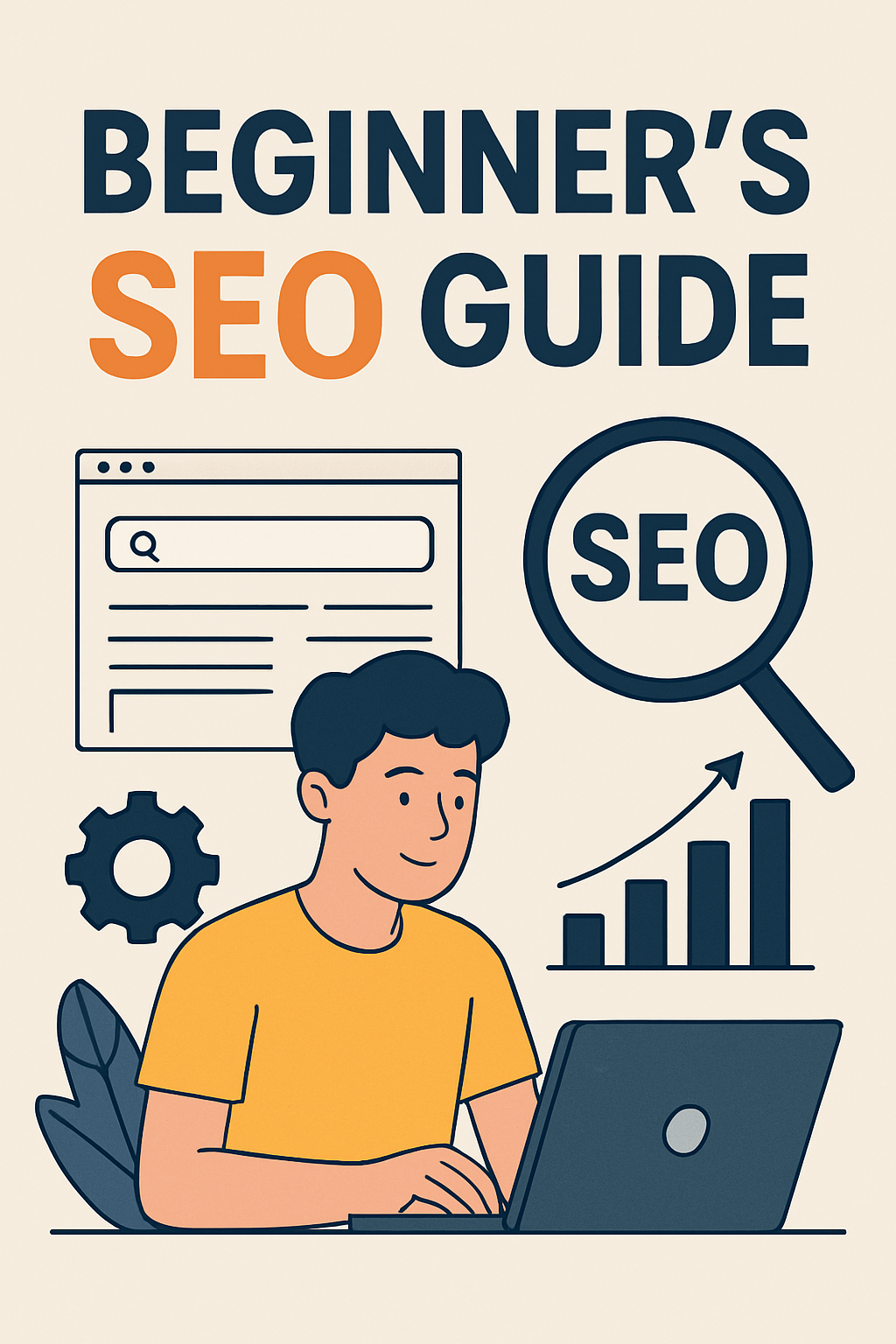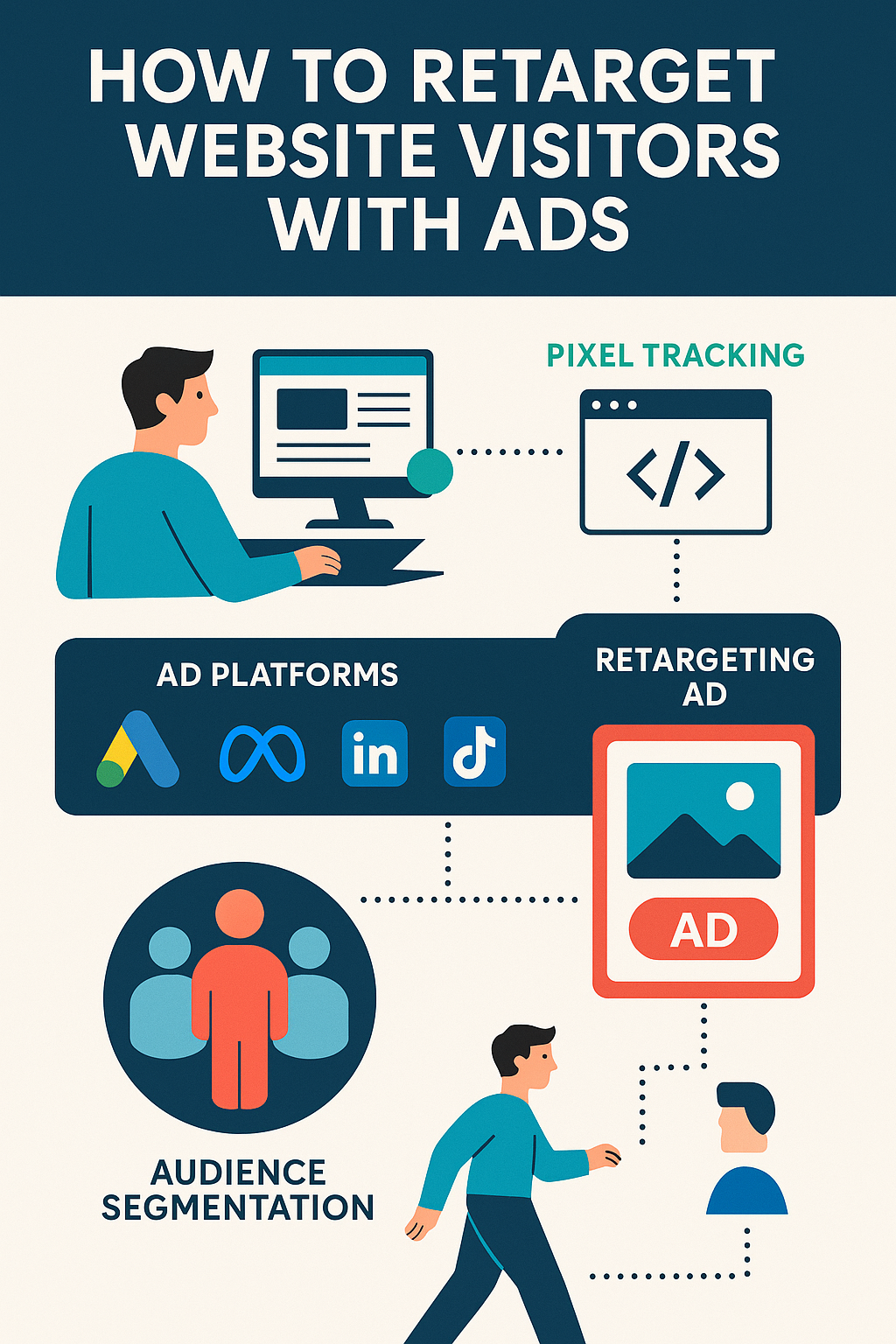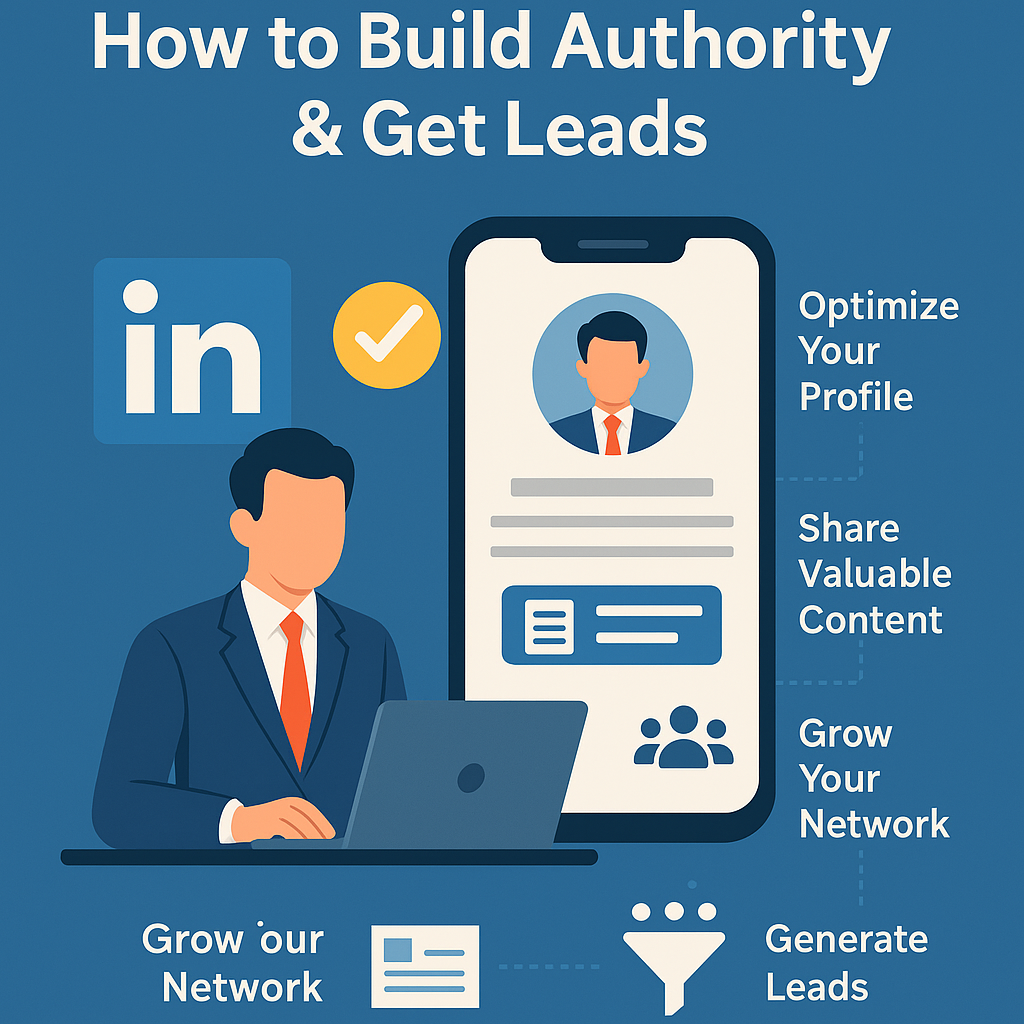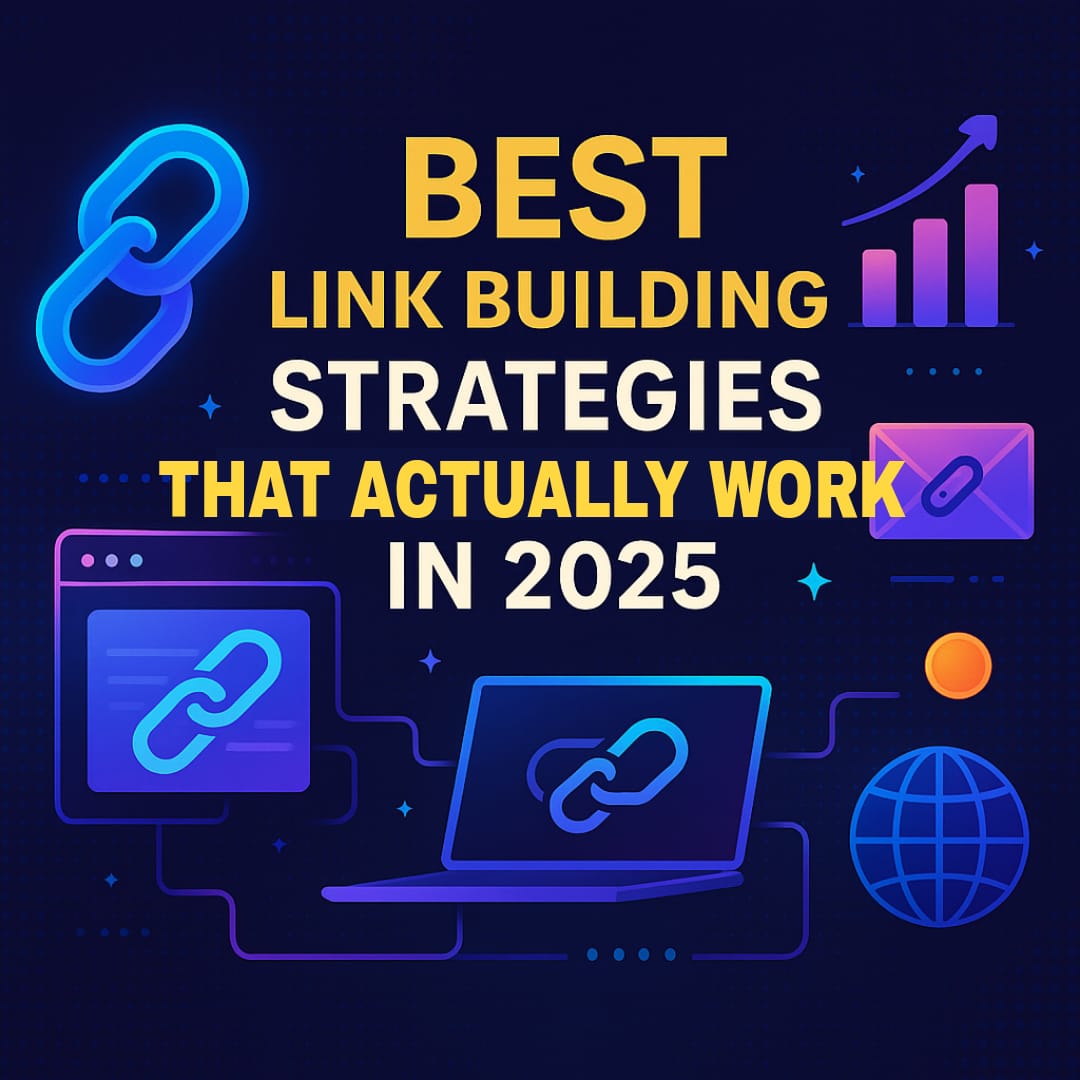Table of Contents
Introduction
What is SEO?
According to Google Search Central, When you built your website, you likely created it with your users in mind, trying to make it easy for them to find and explore your content. One of those users is a search engine, which helps people discover your content. SEO—short for search engine optimization—is about helping search engines understand your content, and helping users find your site and make a decision about whether they should visit your site through a search engine.
Search Engine Optimization (SEO) is no longer an informal title or a catchy phrase; it is the lifeline to building an online presence. It is 2025; Google has made their algorithms smarter than ever. SEO is no longer about stuffing keywords on a page or other shady tactics. SEO is now all about providing quality, human-centric content that both users want to read and search engines trust.
If you have recently built a website and want to monetize it using Google AdSense or another ad network, you must rank well on Google. Visibility on the internet is vital; without it, your dream site is a dream site. This beginner’s guide will walk you through everything you need to know about SEO in 2025 so you can start ranking, driving traffic, and eventually getting paid for your work
Understanding SEO in 2025: What’s Changed and What Hasn’t
While SEO has existed for over 20 years already, things keep changing all the time. Here is what you need to know heading into 2025:
- Page Experience Indexing – User first: Google’s AI’s front and center will focus on user experience as far as on-page elements and rankings go. Regardless of your industry, fast loading sites will rank, mobile compatible sites will rank, the content will rank if done well.
- AI based search: AI is changing everything including the way search results are displayed. AI tools will deliver featured snippets, generative AI summaries, conversational answers, and greatly impact clickable links. As a result, your content must have authority, clear segmented answers.
- E-E-A-T (Experience, Expertise, Authoritativeness, Trustworthiness): E-E-A-T is not optional anymore. It is a blanket foundation of SEO because Google values sites that genuinely believe they know what they are talking about before trusting their content.
- Keywords- in-short – while keywords matter for relevance, context and intent matters more. Ranking is not about dropping 50 of the same keywords – its about answering the searchers question better than everyone else.
In conclusion: The fundamentals of SEO (quality content, quality technical structure, quality keywords) remains constant, but the sophistication of how we are executing continues to advance.
Keyword Research: Finding What Your Audience is Searching For
Keywords connect your content to your audience and as we enter 2025, keyword research is a matter of finding a “magic word,” rather it is to develop an understanding of search intent.
Short-tail keywords versus long-tail keywords: Short-tail (i.e., “SEO”) is broad category and refers to a competitive space. Long-tail keyword (i.e., “beginner’s guide to SEO in 2025”) is very specific and narrow, less competitive and better for conversions.
Search intent categories:
- Informational (i.e., learning about something), “What is SEO in 2025?”
- Navigational (i.e., finding a site), “Ahrefs login”
- Transactional (i.e., buying), “Best SEO course 2025”
- Commercial Investigational, “Yoast SEO vs Rank Math review”
Using common tools such as Google Keyword Planner, SEMrush, Ubersuggest, is still valid, even free methods, like the checks for “People Also Ask” and Google’s auto-suggest can provide you with a pool of golden opportunities.
Pro tip to get AdSense approved: Keep your writing natural around keywords. Google will reject your website if it is spammy or too optimized. Avoid just adding the keyword, and instead, think about placing it into your titles, headers, and content within a logical way that works with the flow of your content.
On-Page SEO: Optimizing What’s on Your Website
Everything on your own site is on-page SEO. Here’s how to do it correctly in 2025:
Tags and Meta Descriptions
- Your title tags should be less than 60 characters long and have your main keyword.
- Meta descriptions should be less than 160 characters, eye-catching and keyword-relevant.
Headings (H1, H2, H3)
- You have one H1 tag (your title).
- Use H2s and H3s to separate out the content. Search engines prefer well-structured information.
Content Quality
- Think more about depth rather than length. Google rewards “complete answers.”
- Include images, infographics, and even videos, to maintain reader engagement.
- Regularly update your content. Freshness matters.
URL Structure
- Keep your URLs short, descriptive, and keyword relevant. e.g. yourdomain.com/beginners-guide-to-seo-2025
Internal Linking
- Link to your own blog posts and pages to keep users engaged and transfer authority.
Image SEO
Use descriptive file names and alt text using relevant keywords.
In closing, if your page flows for a human and looks natural, you’re on the right path.
Technical SEO: Building a Solid Foundation
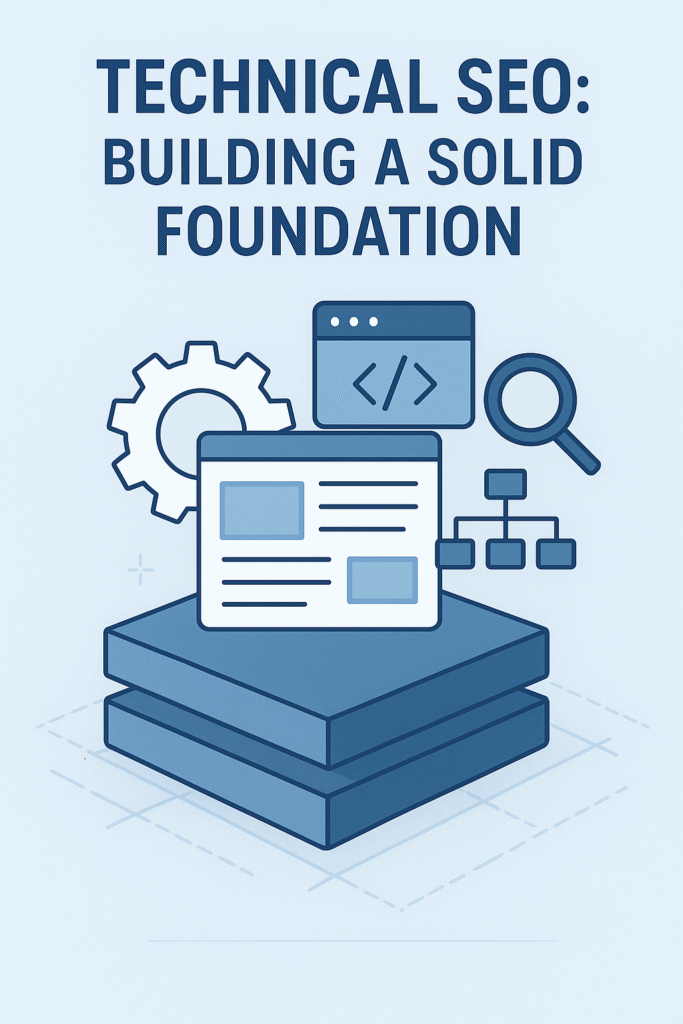
Technical SEO is like the plumbing of your website: it is hidden from view, but it is the most important thing! Without Technical SEO to support your content, the content struggles to rank.
- Mobile-first design: More than 70% of your traffic is likely from a phone. If the site does not work properly, you will not rank.
- Site Speed: A slow site will kill your SEO, and deter site visitors. There are lots of tools to measure site speed: for example, Google PageSpeed Insights or GTmetrix.
- Core Web Vitals: Google identifies how quickly the site loads, how stable the layout is, and when it becomes interactive.
- SSL Certificate (HTTPS): Google prefers secure sites and views this type of site as more trustworthy.
- XML Sitemaps: Assists Google with crawling your site and understanding it.
- Robots.txt: Controls what search engines can index and what they cannot.
Technical SEO seems intimidating, but for most content management systems or website builders, such as WordPress, Wix, or Shopify, there are plugins or settings that assist with technical SEO.
Off-Page SEO: Building Authority Beyond Your Website
You could create the greatest content known to man, but if you have no trust signal from your website… it won’t rank. That’s where off-page SEO comes into play.
- Backlinks: Links from other websites act as a vote of confidence. Quality over quantity always. One link from Forbes or HubSpot is worth 50 random blogs.
- Guest posting: Produce quality content on blogs in your niche with links back to your website.
- Social Signals: Sharing is not a ranking factor per se, but social sharing lead to traffic and social engagement.
- Brand mentions: Brand mentions, even without a link to your website contribute to build the crucial trust signal.
Lastly, don’t fall for “buy backlinks” schemes; google’s algorithm is able to detect them, and can penalize you as a result.
Content Strategy: Blogging, Evergreen Posts, and Beyond
Content is still king – only this time it must be valuable to count. In 2025 those who will be victorious are the ones who author content ecosystems as opposed to individual blog posts.
- Evergreen Content: Posts that stay relevant over time (like “How to do keyword research”).
- Trending Content: Posts that catch the wave of new changes (like “SEO trends in 2025”).
- Pillar Content + Clusters: Develop one huge guide (pillar) with smaller articles (clusters) that all link back to the guide.
- User generated content: Reviews, forums and community generated Q&As keep a site fresh and authentic.
Google likes consistency. It’s better to publish one quality post a week then drop 10 mediocre posts at once.
Measuring SEO Success: Tools and Metrics You Can’t Ignore
It’s impossible to improve something that you don’t monitor. Luckily for us, SEO tools make this simple:
- Google Analytics 4 (GA4): Track traffic, user behaviors, and tracking conversions
- Google Search Console: Views how your site does within search results
- Ahrefs / SEMrush: Paid tools to analyze keywords, backlinks, and competitors
Key metrics to measure:
- Organic traffic growth
- Keyword rankings
- Bounce rate (the lower, the better)
- The click through rate (CTR) on search results
- Conversions (email sign-ups, purchases, etc.)
Monetization and AdSense: Making SEO Pay Off
Ranking without monetization is like building a Ferrari and parking it in a garage. Here’s how SEO works with AdSense and more:
How to get approved by Google AdSense:
- Write original content (no duplicate content).
- Have at least 20–30 well-written articles.
- Have your About, Contact, and Privacy Policy pages live.
- Avoid adult, gambling, or pirated content.
Other sources of monetization:
- Affiliate marketing (sell products/services for commission).
- Selling digital products or courses.
- Sponsored posts.
The traffic you get from SEO is organic, which means you are not paying for ads. Once your website ranks, you earn “free” traffic/visitors, which is critical to long-term monetization.
The Future of SEO: Voice, AI, and Web3
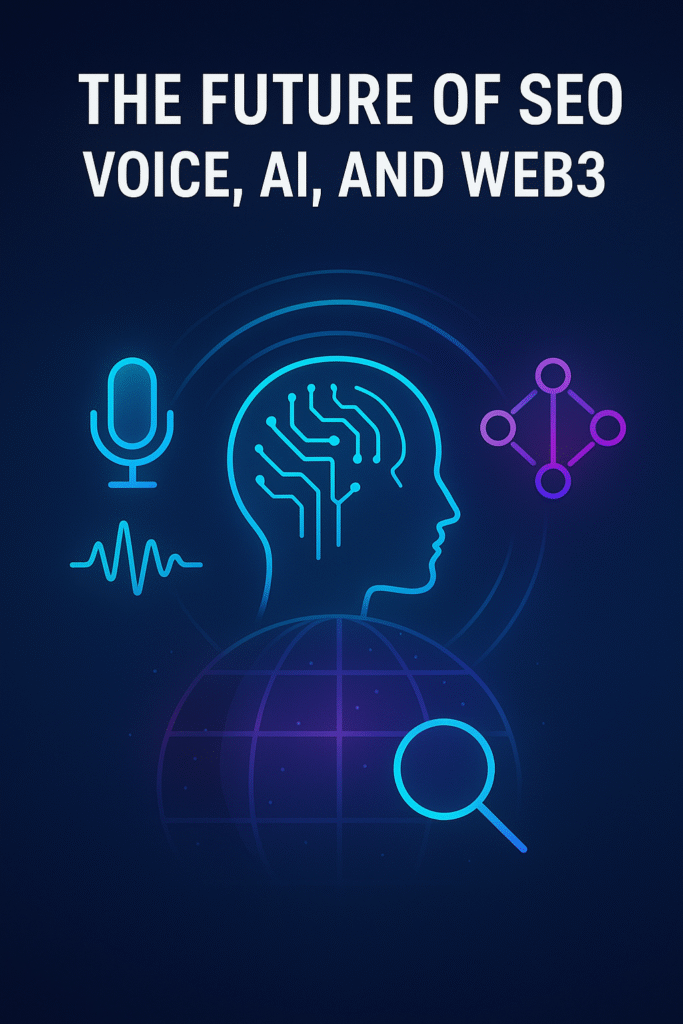
By 2025, SEO won’t be over, but instead part of the evolutionary process. Here is the anticipated direction:
- Voice search: Increasingly, people are utilizing smart speakers and voice assistants. Be sure to optimize for conversational, natural-sounding queries.
- AI-driven answers: Google’s SGE (AI-driven answers) may take away clicks from traditional results, but securing a ranking for “supporting content” will be essential will be essential to chase down.
- Visual search: With new tools like Google’s Lens, we’ve begun to search and find images. Semantic search and structured data are becoming increasingly relevant with searchability of content.
- Decentralized web (Web3): Very early, but as blockchain-based websites develop and gain traction, SEO will grow and change along with it.
Final Thoughts
SEO in 2025 is more about strategy and less about tricks. Focus on high quality, helpful content, establish authority, and have a technically sound site. If you embrace the long game, your website will get traffic, pass through AdSense approval, and create a revenue stream.
Your site is not just competing with other sites, you are competing with AI summaries, voice search, and short attention spans. Those that win will win because they treated SEO as not just a tactic, but a commitment to adding value.
For more such articles click here.
Frequently Asked Questions (FAQs) About SEO in 2025
What is SEO in simple terms?
SEO (Search Engine Optimization), in basic terms, is the act of making improvements to your site so it ranks higher in results from search engines which brings free (organic) traffic.
How long will it take to rank on Google in 2025?
Generally, it takes about 3 to 6 months before new sites will see any meaningful results depending on competition, quality of content, and backlinks.
Do keywords still matter in 2025?
Yes, but keyword stuffing does not work any more. Google cares about search intent, so it understands what users want to see, so it provides them with the best answer.
Is SEO free or paid?
SEO is free—you are not paying Google to rank higher. You may choose to use tools, writers, or SEO professionals to expedite certain processes, hence incurring a fee.
Will SEO improve my chances if I apply for Google AdSense?
Absolutely. Websites that contain quality, original content, proper SEO, and good structure have a much greater chance of being approved for Google AdSense.
What are backlinks and why are they important?
Backlinks are links from other sites pointing to yours. Think of them as “votes of confidence.” Backlinks tell Google that your content can be believed and trusted
Is SEO dead because of AI and ChatGPT?
Not in the least. SEO is changing! AI could impact how people conduct searches, however, websites that have authoritative content and are optimized will still have a prominent place in that ecosystem.
Should I pay attention to my mobile SEO?
Yes! Over 70% of internet traffic comes from mobile devices. Google also uses mobile-first indexing. If your site is not mobile-friendly, then it will be difficult to rank well with them.
What’s the difference between on-page vs. off-page SEO?
On-page SEO is everything you have on your site itself: keywords, content, titles, and speed. Off-page SEO is everything you have outside your site: backlinks, social signals, and brand mentions.
Can I do SEO myself as a beginner?
Not only can you do SEO yourself, but I encourage you to do it yourself! get your feet wet with the basics: keyword research, writing valuable content, basic page titles, and creating internal links. Once you get the hang of things, consider a tool to help you or an expert to help.
